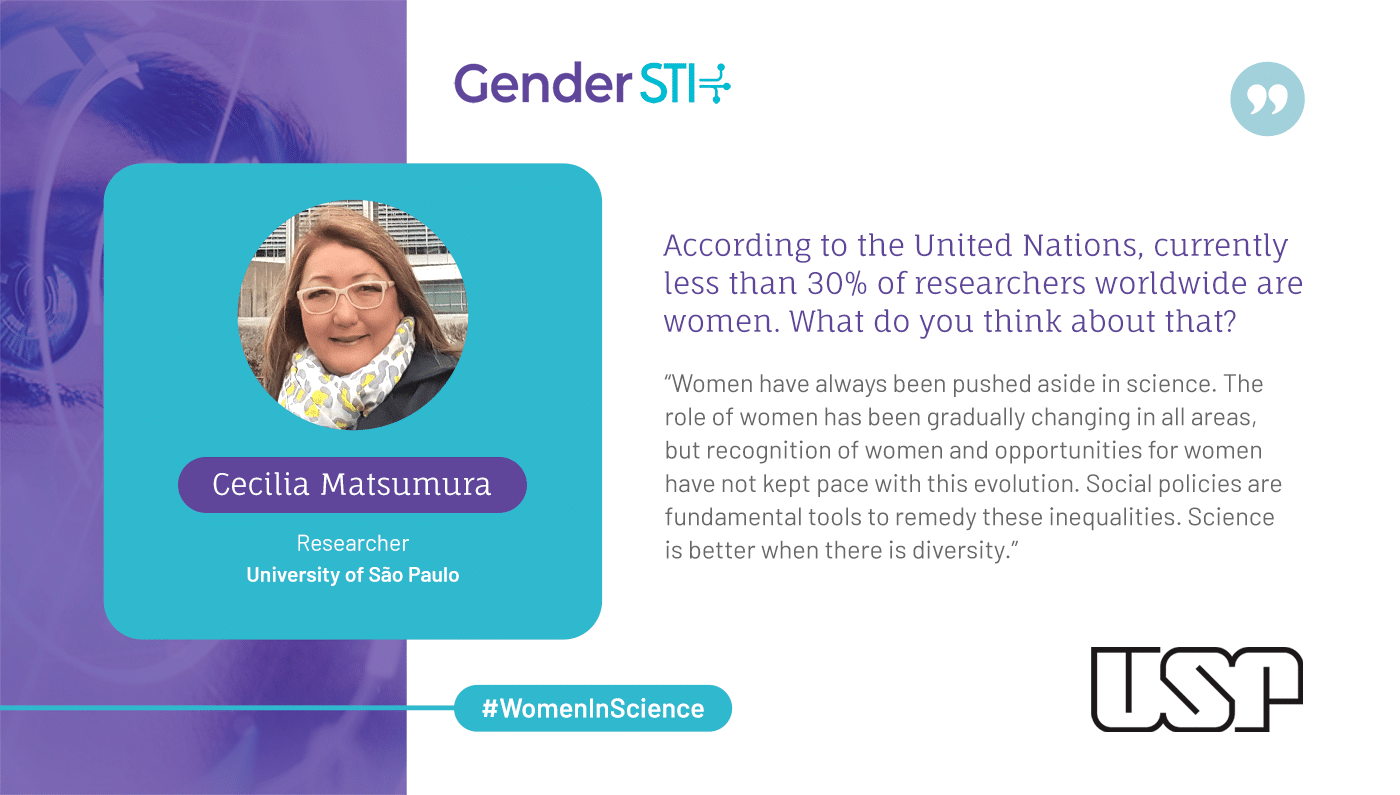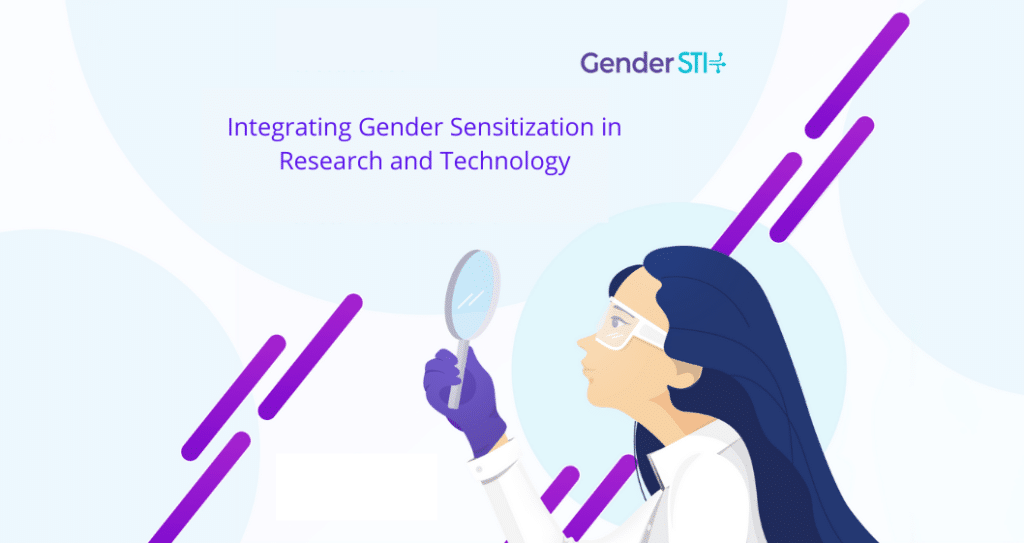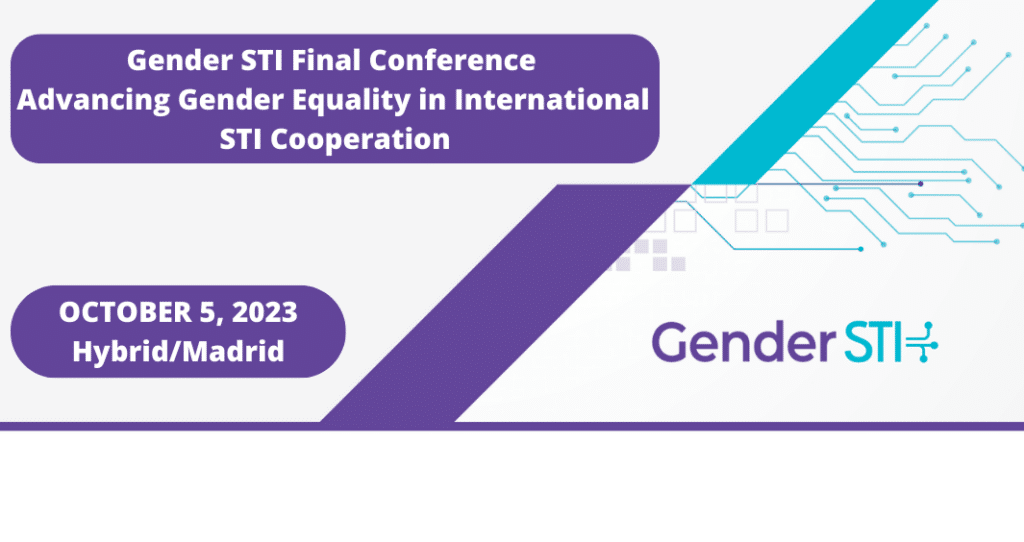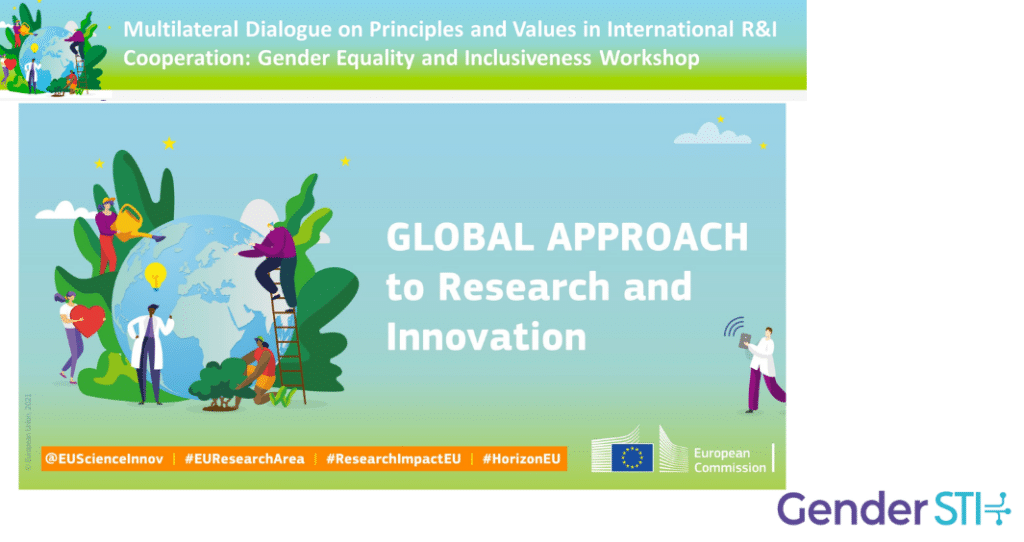Today, the world celebrates the International Day of Women and Girls in Science, which aims to promote full and equal access to and participation in science for women and girls. As part of this effort, Gender STI has launched its own #WomenInScience campaign. We talked to researchers and experts, both men and women, about why they got involved in science, what they think about current statistics on women researchers and what they think needs to be done to encourage more women and girls to pursue scientific careers.
Throughout history, women have been pushed aside in science and have had to fight for their place. Cecilia Matsumura, a brilliant woman scientist from the University of São Paulo, points out that although women’s roles have been changing, recognition of women and opportunities for them have not kept pace with this evolution. These are still fundamental inequalities that we need to address.
What is your job position and what science field do you work in? What does your job entail?
I am a researcher at IBE-USP Institute of Studies Brazil Europe at the University of São Paulo. In addition to the management of international projects, my research is on the themes of Digital Technologies with Sustainability, Smart and Sustainable Cities. I am also an alternate Brazilian NCP (National Point of Contac) for the European Commission's ERC European Research Council, providing support and guidance to Brazilian researchers who wish to apply their research to European programs.
Why did you decide to pursue a career in science, and specifically in your scientific field?
When I started working at the university in 1998, I started to have contact with professors and researchers and saw that I could contribute to society through research and science.
According to the United Nations, currently less than 30% of researchers worldwide are women. What do you think about that?
In fact, this number is not good. Women have always been pushed aside in science. The role of women has been gradually changing in all areas, but recognition of women and opportunities for women have not kept pace with this evolution. Social policies are fundamental tools to remedy these inequalities. Science is better when there is diversity.
What would you tell young girls and women who are interested in pursuing a career in science?
Science is passion. Understanding something so complex, having the data and seeing the transformations is wonderful. Come face this challenge.
What message would you send to the public on the International Day of Women and Girls in Science?
Each one of us can make a difference, the fundamental contribution of women. Come and be part of it!



